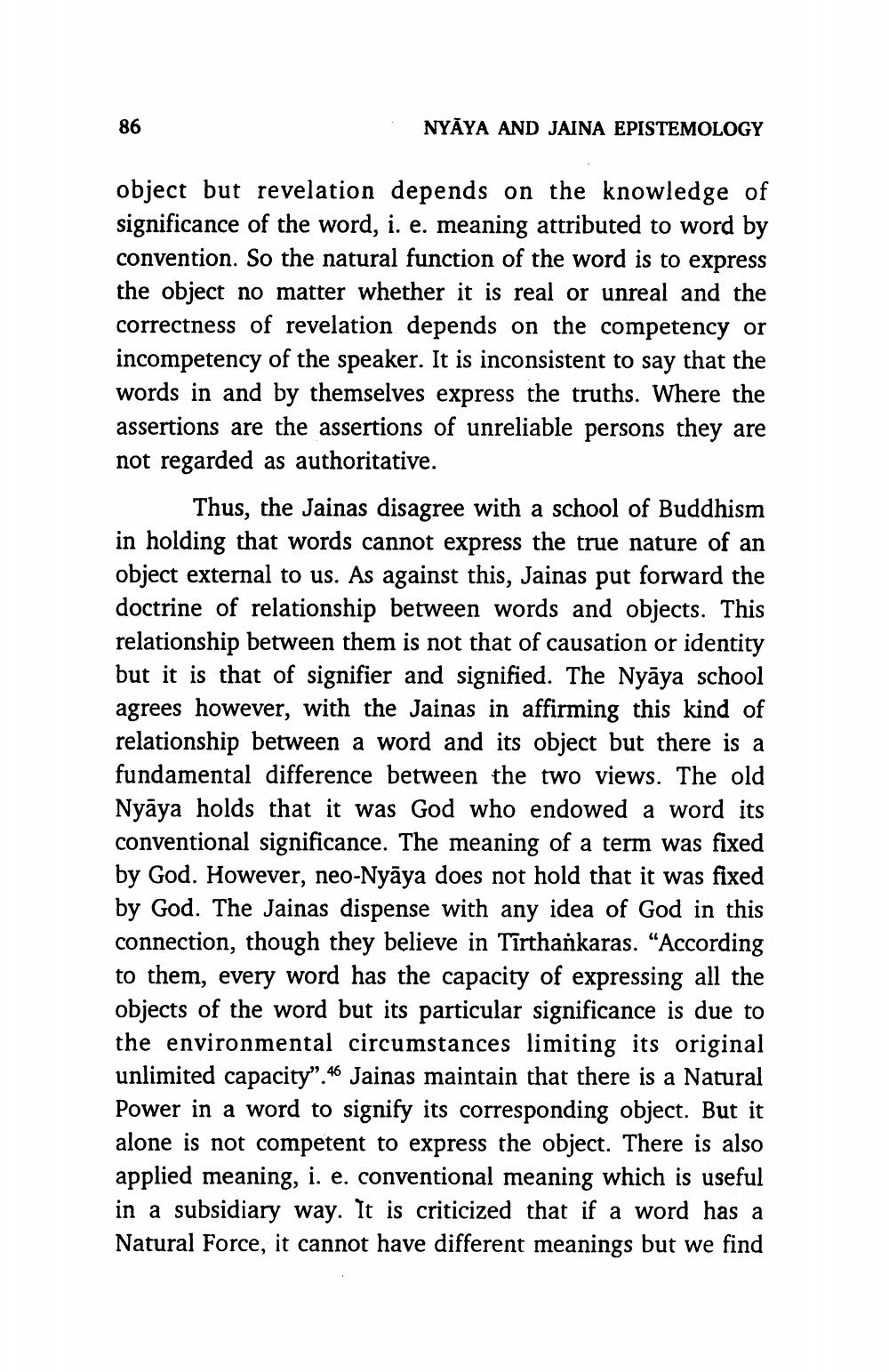________________
86
NYAYA AND JAINA EPISTEMOLOGY
object but revelation depends on the knowledge of significance of the word, i. e. meaning attributed to word by convention. So the natural function of the word is to express the object no matter whether it is real or unreal and the correctness of revelation depends on the competency or incompetency of the speaker. It is inconsistent to say that the words in and by themselves express the truths. Where the assertions are the assertions of unreliable persons they are not regarded as authoritative.
Thus, the Jainas disagree with a school of Buddhism in holding that words cannot express the true nature of an object external to us. As against this, Jainas put forward the doctrine of relationship between words and objects. This relationship between them is not that of causation or identity but it is that of signifier and signified. The Nyāya school agrees however, with the Jainas in affirming this kind of relationship between a word and its object but there is a fundamental difference between the two views. The old Nyāya holds that it was God who endowed a word its conventional significance. The meaning of a term was fixed by God. However, neo-Nyāya does not hold that it was fixed by God. The Jainas dispense with any idea of God in this connection, though they believe in Tirthankaras. “According to them, every word has the capacity of expressing all the objects of the word but its particular significance is due to the environmental circumstances limiting its original unlimited capacity”.46 Jainas maintain that there is a Natural Power in a word to signify its corresponding object. But it alone is not competent to express the object. There is also applied meaning, i. e. conventional meaning which is useful in a subsidiary way. It is criticized that if a word has a Natural Force, it cannot have different meanings but we find




